“Adaptability stands as one of the most valuable attributes we can cultivate in this environment.”Dr John Kinniburgh, Headmaster

Toowoomba Grammar School (TGS) has consistently prepared young men for life and work beyond the School gates.
This commitment is reflected in how, for generations, our Old Boys have maintained strong connections with the School and their region, demonstrating a dedication to making a meaningful difference in the world.

Honouring the Past, Preparing for the Future
The Grammar 150 celebrations this year offer a special opportunity to reflect on the significant contributions of our former students who have achieved remarkable success locally, nationally and internationally.
As we honour this legacy, we must also look forward. A TGS education has long equipped graduates for both specialist and generalist pathways. The world our boys are entering today, however, is far more complex. Rapid advancements in technology, including automation and artificial intelligence, are transforming industries, presenting both challenges and unprecedented opportunities.
In this context, schools like TGS must anticipate societal changes, the evolution of industries and the careers our students will pursue. This is no simple task. It requires balancing the wisdom of the past 150 years with the need to adopt new approaches fit for the future.
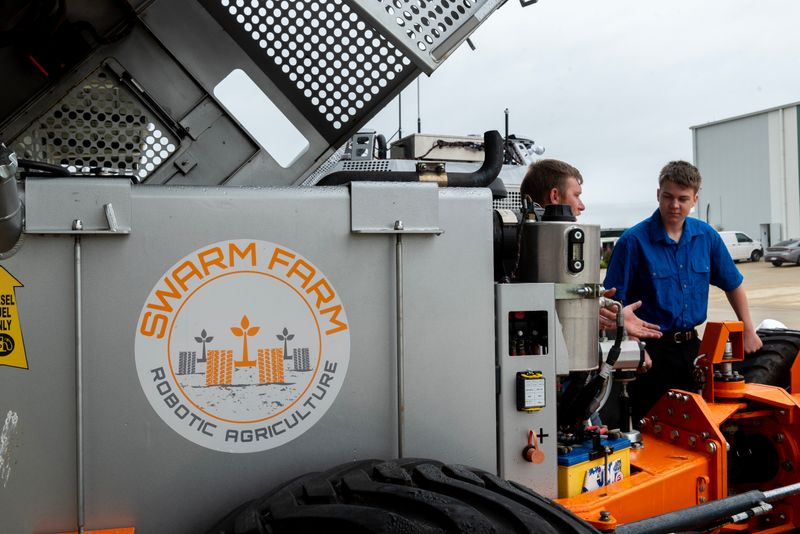
The Case for Innovation in Education
Our core purpose is “to educate boys and develop their good character for life,” and it is this focus on character that forms the rich foundation of learning at TGS. Character development underpins adaptability, it ensures boys are equipped to navigate, embrace and lead change. This is a crucial focus for schools like ours in today’s dynamic environment.
Change is constant in the modern world. As educators, we recognise this reality and accept the responsibility of preparing our students for an ever-evolving society. Our challenge is to maintain relevance amidst the rapid advancements in technology, industry and social dynamics.
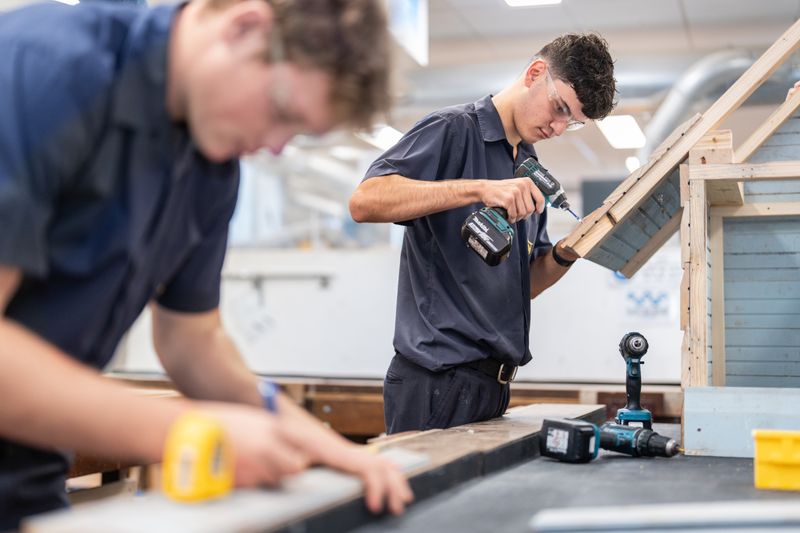
In response, TGS continues to uphold its traditional commitment to building deep knowledge while embracing research-informed approaches to teaching and learning. Given the speed of global change, it is vital that boys leave TGS with a diverse toolkit of skills and frameworks that allow them to respond thoughtfully and confidently to uncertainty and opportunity.
Innovation plays a central role in this. While the term is often misunderstood or diluted, genuine innovation in schools should be measured by improvement and impact, not by novelty factor. There is a tendency in education to layer new initiatives onto old systems, creating complexity rather than clarity. Innovation is not a veneer of new technology, a flashy idea or a gimmick. It’s about refining our practices so we can do things better and help students understand how to do the same in the world beyond the School.
Equipping Boys for an Evolving World
The landscape awaiting a TGS graduate is dynamic and multifaceted, characterised by emerging technologies and complex global demands. These include climate change, environmental sustainability, geopolitical instability, shifting economies, global health challenges and rising expectations around social responsibility and ethical leadership. Navigating such a landscape requires more than technical knowledge. It calls for adaptability, critical thinking, cultural awareness and a capacity to lead with confidence and integrity.
Teaching must, therefore, extend beyond mere content delivery. Through our approach, we equip boys with both the mindset and skillset to thrive amid uncertainty and contribute meaningfully to the communities and industries they will one day shape. In this context, innovation isn’t about chasing trends but about thoughtful progression, embracing necessary change while remaining grounded in our values and traditions.
Innovative thinking requires a solid foundation of knowledge. From this base, students learn to make connections across disciplines, synthesise ideas and apply their understanding in practical and imaginative ways. Such cumulative learning deepens understanding and helps shape career pathways aligned with personal interests and community needs.
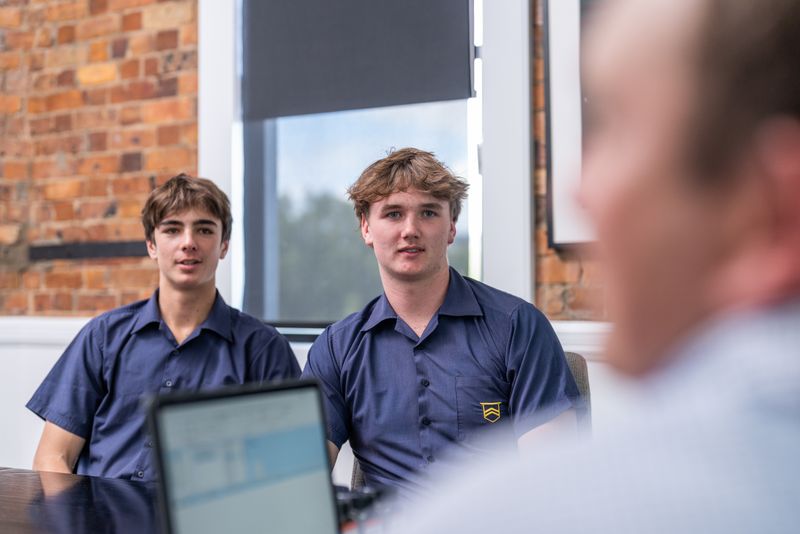
At TGS, we view innovation as solving real-world challenges with creativity, care and purpose. By drawing on the collective wisdom of our staff, alumni and regional partners, we promote equitable learning that balances specialised expertise with broad and transferable capabilities. Our students connect their learning to the world around them, preparing not only for emerging trends and opportunities but also for essential trades and traditional professions.
This generation of learners is distinct. Today’s boys are digital natives: information-savvy, globally aware and purpose-driven. Many are also deeply committed to making a meaningful contribution with an entrepreneurial spirit and appetite for relevance. Therefore, we have an obligation to provide educational experiences that stretch their thinking and nurture their sense of responsibility.
They are also coming of age at a critical time for Australia. Our nation faces a shrinking skilled workforce, particularly in trades, care industries and technology. Demographer Simon Kuestenmacher warns that by 2030, more than 20% of Australia’s current tradespeople will have retired, with fewer than half the professionals needed to replace them. This looming shortfall creates both a challenge and an opportunity for our students.
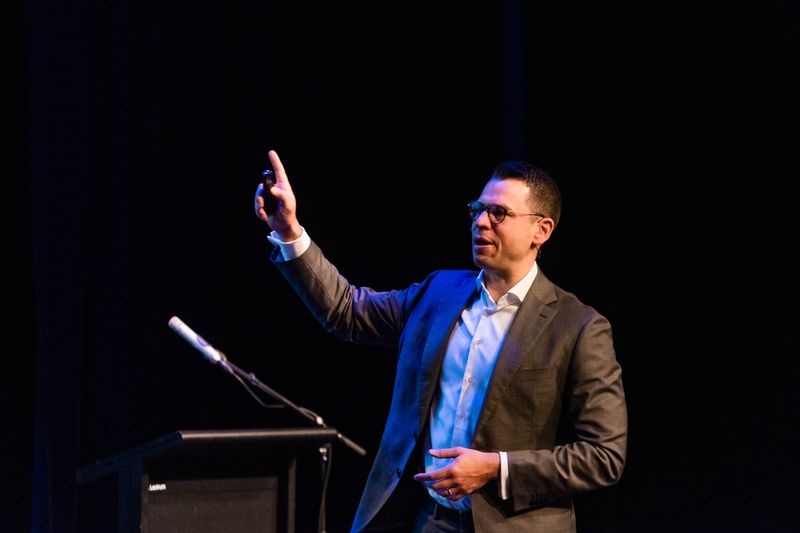
TGX: A Grounded and Future- Focused Program
These challenges are particularly pronounced in Queensland, where the regional economy depends on a blend of traditional industries and emerging sectors. In the Darling Downs, for example, the $1.27 billion agricultural industry must be sustained alongside growing workforce needs in healthcare, education and technology services.
TGS fosters this quality through diverse learning experiences, reflective practices that build self-awareness and a setting that nurtures curiosity and creativity. Academic rigour and applied learning work hand in hand, helping boys become comfortable with uncertainty while developing the resilience to lead in a rapidly changing world.
To address these evolving demands, both global and local, Toowoomba Grammar School is developing an integrated approach to education that connects learning with real-world challenges. Central to this vision is TGX, a program designed to help students explore meaningful problems and develop real solutions.

Grounded in the key contexts of regional Australia, agriculture, industry and the environment, TGX encourages boys to think critically and act practically. Through partnerships with industry, the use of design thinking and a strong focus on implementation, not just ideas, students are supported to move from concept to outcome. Whether it is improving water use in agriculture or addressing sustainability in local industries, TGX challenges boys to apply their learning in ways that are relevant, purposeful and enduring.
This work is supported by the School’s outstanding new facilities, including the Design, Engineering and Technology Centre and the Agriculture and Industry Centre. These spaces allow boys to explore hands-on design, engineering, technologies and trades in an environment that reflects the industries they may one day lead or engage with.
Learning with Purpose and Impact
We believe that boys must learn not just to think but to act and to understand how their thinking connects with the world around them. That’s why our learning experiences prioritise both the process and the outcome. We provide meaningful feedback from staff and industry mentors, helping boys reflect, iterate and grow.
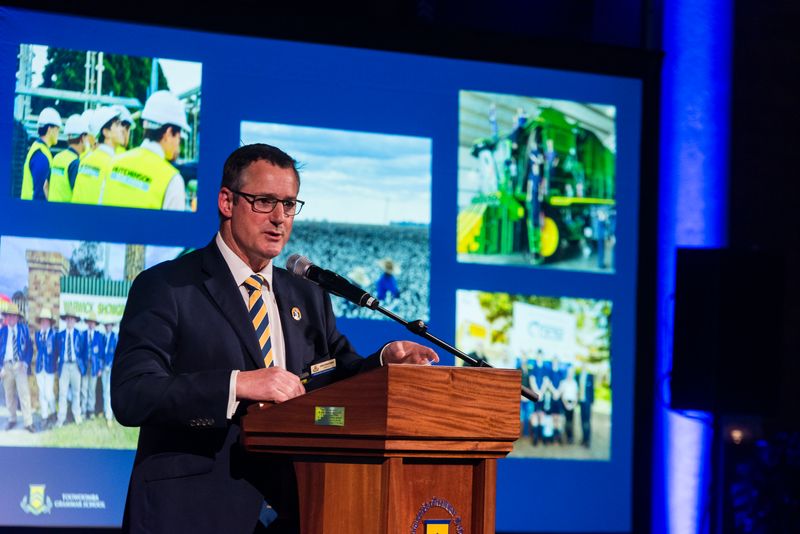
At Toowoomba Grammar School, we are not replacing tradition, we are building on it. By combining a strong academic foundation with opportunities for applied, contextual learning, we are preparing boys to be capable, adaptable and confident contributors to their communities and their future world.
FIDELIS IN OMNIBUS
Latest Blog
Boys and Belonging at TGS
As a boarding master of adolescent boys, my role fundamentally concerns pastoral wellbeing and character development to support a successful academic journey. A positive sense of belonging — where boarders feel safe, supported and heard — is fundamental to an effective boarding environment. As such, I felt there was a distinct connection between the International Boys’ Schools Coalition’s (IBSC) theme for the 2024–25 Action Research Cohort, “Boys and Belonging” and what I believe is best…
Fostering Growth and Resilience
This philosophy is vividly demonstrated through our Junior School MATES program, an initiative designed to equip boys from Prep to Year 6 with the skills they need to thrive both in and out of the classroom. Year 6 leader Hugo Seaby epitomises what the program is all about. As a leader in Stephens House, he explains its importance: “It’s about spending time with the younger boys and learning about honesty, respect, kindness and other attributes like that.” He said that it’s helpful for the…
Preparing for the Future of Work
For months I have been watching the earthworks being undertaken ahead of construction for the new DET Centre at Toowoomba Grammar School with interest. It is hard to miss, given that the Headmaster’s residence, our family home, is right next to the building site. The vibrations can be unsettling, and the noises are constant. However, each day reminds me of the important work underway to secure a part of the School’s future. Soon, all boys at TGS will have the opportunity to immerse themselves…
“Watch your character, it becomes your destiny.”
Whether it was American essayist Ralph Waldo Emerson, Chinese philosopher Lao Tzu, or even UK Prime Minister Margaret Thatcher’s father who coined the phrase “watch your character, it becomes your destiny,” it was Dr Linda Evans who gave it real relevance to a theatre full of students, staff and families. After a decade and a half in charge of Toowoomba’s respected Fairholme College as Principal and some 22 years in total on staff, Dr Evans will leave the institution she has led and loved by…
Preparation for Boarding: Practical Tips and Tricks
In fact, I’ve coined the phrase “the clearer the runway, the smoother the landing” as a neat summary of this observation. A great deal of boarding experience can be initiated at home in the weeks and months leading up to your son’s departure, helping him prepare psychologically and logistically for his upcoming journey. At TGS, we acknowledge that the boarding journey for boys and families starts long before they enter the house in late January. In the mind of a new boarder and their family,…
Exploring the Role of Neuroscience in Supporting Teenage Boys
Recent insights from neuroscience reveal that the teenage brain undergoes significant changes, particularly in the frontal lobe, which is essential for decision-making, impulse control and emotional regulation. By leveraging this knowledge, we can create supportive environments that guide our boys through the complexities of their teenage years.The Prefrontal Cortex The prefrontal cortex, located in the frontal lobe, is one of the last areas of the brain to mature, significantly impacting…
Remembering Tony Booth OAM
As a schoolboy, Tony excelled at athletics, demonstrating exceptional speed and talent. He went on to win Queensland titles in both the 100 yards and 440 yards, establishing himself as one of the state's premier sprinters. From 1956 to 1989, Tony devoted more than three decades to coaching athletics, cross-country, swimming and rugby at Anglican Church Grammar School (Churchie) in Brisbane, where he became a beloved mentor to countless students. His dedication, expertise and genuine care for…
Wellbeing and Character Development Program — Benefiting Students and Staff Alike
In 2024, the School re-established the Head of Pastoral Care position. The role will be pivotal in supporting all staff to foster a supportive and nurturing environment at Toowoomba Grammar School. Integral to the role’s success is the parallel expansion of the Wellbeing and Character Development (WCD) program to yield multifaceted benefits for both staff and students. For staff, the Head of Pastoral Care provides guidance, support and resources, aiding in their efforts to address students’…
Remembering William Vaughan Hinton OAM
That spirit of curiosity and courage would carry him through a life of service, media innovation and deep care for others. William Vaughan Hinton OAM Vaughan's career began as a cadet reporter at the Toowoomba Chronicle in 1948, followed by work at ABC Radio. This early start launched a lifelong vocation in public service media, built on his belief that stories could shape understanding, challenge assumptions and bring people closer to one another. After completing national service with the…